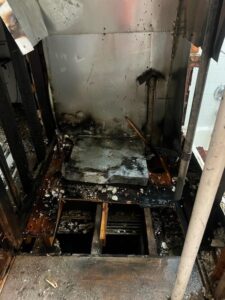Navigating the world of home buying can be daunting, but one of the most crucial steps in this process is hiring a home inspector. Whether you’re a first-time buyer or a seasoned investor, understanding what home inspectors Loveland CO do and how to choose the right one can make all the difference. This ultimate guide will walk you through everything you need to know about home inspectors to ensure a smooth and successful property purchase.
Table of Contents
Navigating the world of home buying can be daunting, but one of the most crucial steps in this process is hiring a home inspector. Whether you’re a first-time buyer or a seasoned investor, understanding what home inspectors Loveland CO do and how to choose the right one can make all the difference. This ultimate guide will walk you through everything you need to know about home inspectors to ensure a smooth and successful property purchase.
What Exactly Do Home Inspectors Do?
The Role of a Home Inspector
Home inspectors are professionals who assess the condition of a property before it is bought or sold. Their job is to identify any issues or potential problems that could affect the value or safety of the home. This includes examining the structural elements, systems, and components of the property, from the roof to the foundation.
Key Areas Covered by Home Inspectors:
• Structural Integrity: Walls, foundations, and framing.
• Systems and Components: Plumbing, electrical systems, and HVAC.
• Exterior and Interior Conditions: Siding, windows, doors, and flooring.
• Specialized Areas: Crawl spaces, attics, and basements.
Why Are Home Inspectors Important?
The Benefits of a Thorough Inspection
A detailed home inspection provides valuable insights into the condition of a property, helping buyers avoid costly surprises and making informed decisions. Here’s why home inspectors are essential:
**1. Uncover Hidden Issues: A professional inspector can identify problems that may not be immediately visible, such as structural defects, hidden mold, or electrical issues.
**2. Negotiate Repairs: Inspection reports can be used as a negotiation tool to request repairs or price reductions from the seller.
**3. Safety Assurance: Inspectors help ensure that the home is safe to live in by identifying potential hazards and compliance issues.
**4. Long-Term Savings: By addressing issues early, you can avoid more expensive repairs and maintenance down the road.
How to Choose the Right Home Inspector
Key Factors to Consider
Choosing the right home inspector is crucial for a successful inspection. Here’s what to look for:
**1. Qualifications and Experience:
• Licensing and Certification: Ensure the inspector is licensed and certified by a reputable organization, such as the American Society of Home Inspectors (ASHI) or the International Association of Certified Home Inspectors (InterNACHI).
• Experience: Look for inspectors with several years of experience in the field. Experienced inspectors are more likely to identify issues and provide accurate assessments.
**2. Reputation and Reviews:
• Online Reviews: Check reviews on platforms like Google, Yelp, or Angie’s List to gauge the inspector’s reputation and customer satisfaction.
• Referrals: Ask for recommendations from friends, family, or your real estate agent.
**3. Sample Reports:
Clarity and Detail: Review sample inspection reports to ensure they are thorough and easy to understand. The report should include detailed descriptions of issues and clear recommendations.
**4. Cost and Value:
Pricing: Obtain a detailed quote and understand what is included in the price. Be cautious of inspectors who offer significantly lower rates, as this may indicate a lack of thoroughness.
**5. Availability and Communication:
• Timeliness: Ensure the inspector can accommodate your schedule and provide timely inspection services.
• Communication: Choose an inspector who communicates clearly and is willing to answer your questions about the inspection process and findings.
What to Expect During the Inspection
The Inspection Process
Understanding what to expect during the inspection can help you prepare and ensure a smooth process. Here’s an overview of what typically happens:
**1. Pre-Inspection Preparation:
• Access: Ensure the inspector has access to all areas of the property, including the attic, crawl spaces, and any locked rooms.
• Questions: Prepare any questions or concerns you have about the property to discuss with the inspector.
**2. The Inspection Day:
• On-Site Inspection: The inspector will conduct a thorough examination of the property, including structural elements, systems, and components.
• Client Presence: It’s beneficial to be present during the inspection to observe and ask questions. This allows you to gain a better understanding of any issues found.
**3. Post-Inspection Report:
Detailed Report: After the inspection, the inspector will provide a detailed report outlining their findings. This report should include descriptions of any issues, photographs, and recommendations for repairs or further evaluations.
**4. Follow-Up:
• Clarifications: Review the report with the inspector if needed, and ask for clarification on any issues or recommendations.
• Action Plan: Use the inspection report to make informed decisions about the property, such as negotiating repairs or deciding whether to proceed with the purchase.
Common Issues Home Inspectors Look For
Typical Problems Found in Inspections
Home inspectors often encounter various issues during their inspections. Here are some common problems they may identify:
• Structural Defects: Foundation cracks, uneven floors, or compromised framing.
• Plumbing Issues: Leaks, outdated pipes, or water pressure problems.
• Electrical Concerns: Faulty wiring, outdated panels, or safety hazards.
• HVAC Problems: Inefficient systems, poor ventilation, or maintenance issues.
• Moisture and Mold: Signs of water damage, mold growth, or inadequate insulation.
Conclusion
Choosing the right home inspector is a crucial step in the home buying process. By understanding the role of home inspectors, knowing what to look for, and being prepared for the inspection, you can ensure a thorough evaluation of the property and make informed decisions.
A comprehensive inspection provides valuable insights into the condition of the home, helping you avoid unexpected issues and ensuring that you are making a sound investment. By following the guidelines in this ultimate guide, you can confidently select a qualified home inspector and take the necessary steps to protect your investment and enjoy peace of mind.
Investing time and effort in choosing the right home inspector will pay off in the long run, providing you with the information needed to make informed decisions and ensuring a successful property purchase. crawl space vapor barrier Greeley CO




More Stories
Great Expectations Floor Restoration Boise: Bringing Your Hardwood Floors Back to Life
On-Site Public Insurance Claims Adjuster Los Angeles: Why Local Expertise Makes All the Difference
Renovate Builders Remodeling Seattle: Transforming Homes with Expert Craftsmanship